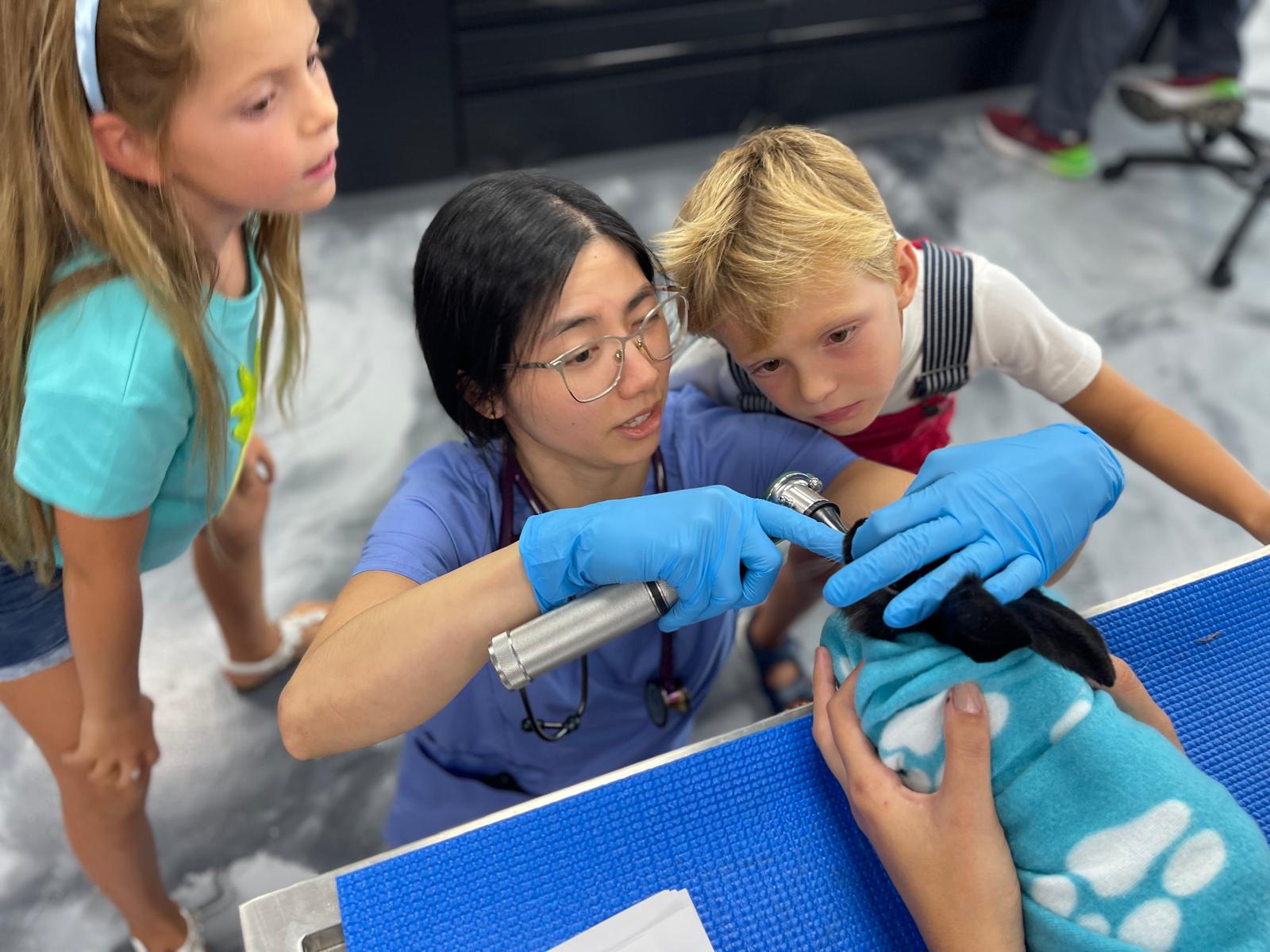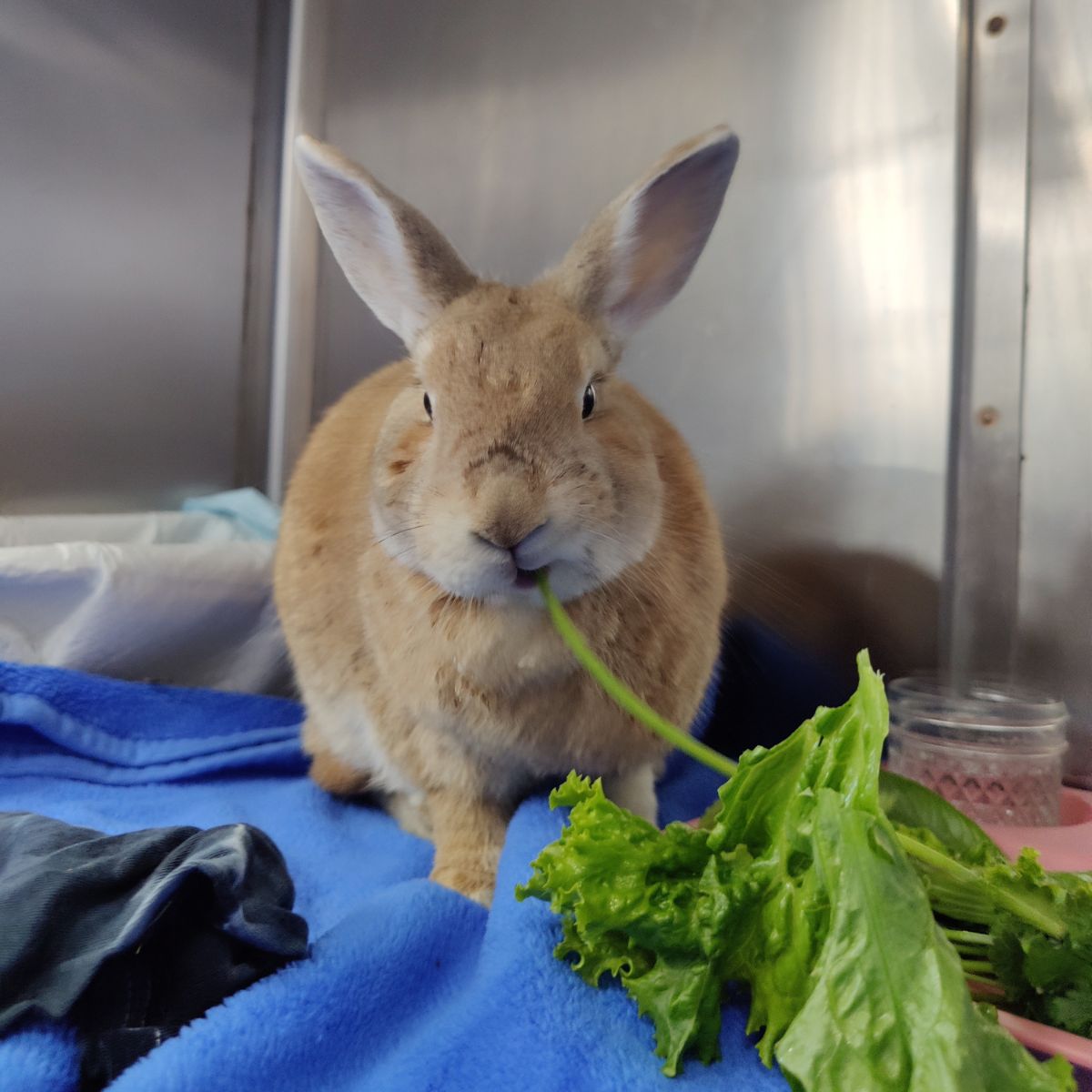Rabbit Owner Resources
Discover helpful care tips and insight into your bunny’s behavior and well-being.
Rabbit Owner Resources
Routine exam and senior bloodwork screening is highly recommended for rabbits (just like for any other pets and humans). We offer thorough physical exams, bloodwork testing, and X-ray images for rabbits. Sedation may be recommended during these procedures.

As the name implies, gastrointestinal stasis means a slowing down or stopping of food ingestion and fecal output in rabbits. This is seen in rabbits that are feeling ill. GI stasis is a way for rabbits to show they are not well, “stasis” itself is not a disease. Therefore, it is extremely important to have a veterinarian examine the rabbit and run diagnostics to help rule out life-threatening causes in all stasis episodes. For example, blood work can help rule out liver lobe torsion and abdominal x-rays can rule out full obstruction; both conditions may require life-saving emergency surgical treatments.
Many things can trigger GI stasis signs in rabbits. Treatments will always require assisted feeding, good pain management, replenishing lost fluids/hydration, and sometimes antibiotics and motility medications. Do NOT start medications until directed by a veterinarian; some medications can cause more harm than good if used inappropriately.
RHDV2 (Rabbit Hemorrhagic Disease Virus serotype 2)
Book a vaccine appointment for your rabbit with us!
RHDV2 is a deadly and highly contagious virus that entered the USA during the same time as COVID. The virus kills quickly and often silently. Both wild and domesticated rabbits are at risk, RHDV2 has been confirmed in wild rabbits in New Mexico, Arizona, Texas, Colorado, California, Nevada, Utah, Idaho, Wyoming, Montana, and Oregon. The virus is also hardy in the environment and can be contagious through fomites (aka surfaces and/or food items).
Spay/neuter

Essential Dental Health Care for Small Mammals
Rabbits, guinea pigs, and hamsters have teeth that grow continuously, necessitating diligent dental care. Chewing on fibrous foods like timothy hay helps naturally wear down their teeth and prevent overgrowth. Regular dental check-ups every 6-12 months are crucial to ensure teeth remain properly aligned and to detect any issues early.
Signs of Dental Problems:
Smaller or fewer fecal pellets
Audible teeth grinding
Excessive drooling
Common Causes of Dental Issues
Dental disease is more common in mature pets but can occur in younger animals as well. Several factors can contribute to dental issues, depending on the species:
Guinea Pigs: Vitamin C deficiency and insufficient hay in their diet.
Rabbits: Poor genetics due to indiscriminate breeding, leading to early-onset dental disease. Minor issues can worsen with age as teeth become misaligned.
Preventative Measures and Treatment
Providing a diet rich in timothy hay can significantly help in maintaining dental health by promoting natural teeth wear. However, some pets may still develop dental problems despite the best preventive measures. Malocclusion, a condition where the teeth do not align properly, often requires dental trims under anesthesia. Because their teeth grow continuously, these procedures might need to be repeated every 4-16 weeks to keep the pet comfortable and healthy.
Schedule a rabbit dental appointment today!
